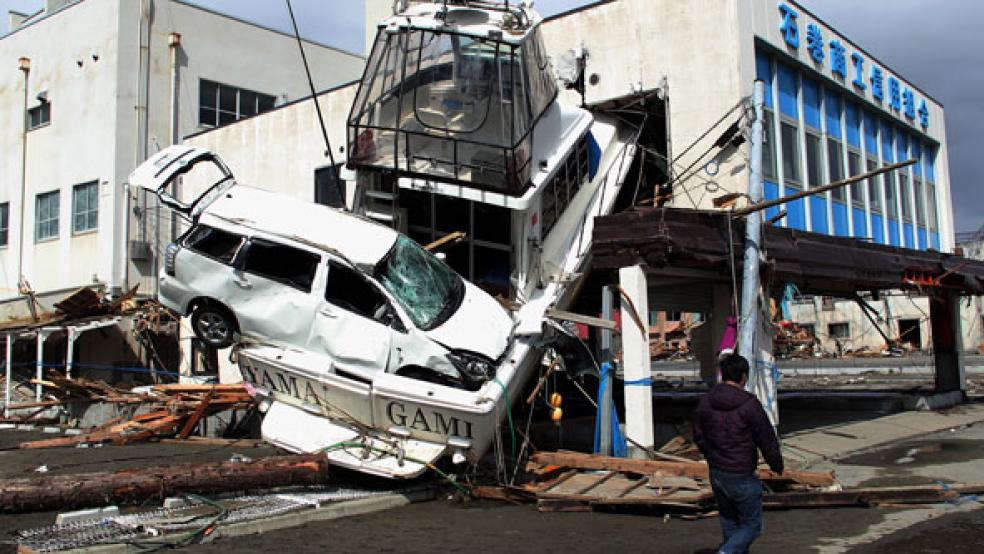The massive earthquake, tsunami and nuclear disaster in Japan last month took a chunk out of that country’s economy equal to between 3.3 and 5.2 percent of its 2010 GDP, according to an OECD report released Thursday. In dollar terms, that’s between $178 billion and $280 billion. But surprisingly, as the disaster ripples through the global economy, the effect on some U.S. industries could be positive.
The situation in Japan has certainly interrupted the global supply chain, which is having a negative impact on industries in the U.S., perhaps most acutely the auto industry. This could result in higher car prices for American consumers. It could also cut into available inventory, according to auto industry guide Edmunds.com.
But Japan’s interrupted production could also give U.S. companies an edge, says Robert E. Scott, senior international economist at the Economic Policy Institute. “Japan is both a major supplier of components for U.S. manufacturers, and also a major competitor,” says Scott. “At the moment, it appears that the benefits may outweigh the costs, although it is too soon to say for sure.”
In March, Big-Three domestic auto production increased 27.5 percent over a year ago, while Japanese production in the U.S. increased only 7 percent. “The disparity between U.S. and Japanese firms did increase significantly in March,” says Scott, but it’s not clear whether this is due to parts shortages or other factors.
Gains for the U.S. auto industry because of the earthquake are likely to be temporary, however. “Most industrial production facilities in Japan received little or no damage … and are expected to recover quickly,” he said. Also, global industrial production in February 2011 remained 15 percent below its 2008 peak, so there is room for shifting production both within Japan and to other Asian countries, according to the OECD report.
While the U.S. auto industry is thriving, the Japan disasters have “fundamentally changed the perception and viability of nuclear power as an energy supply option,” says Scott. A report from Moody’s Investors Service earlier this month listed a number of risks the U.S. nuclear industry now faces, including increased political intervention, more regulatory scrutiny and increased pressure from opposition groups. “It could limit the use of nuclear power in the future,” says Scott.
Japan is on track to return to modest growth of 2.3 percent in 2012, from a meager projected 0.8 percent this year -- the OECD report calls an extended downturn unlikely. Historically, the negative short-term impact of disasters in developed countries gives way to a rebound when reconstruction spending gets underway. However, some regions of the country will take years to fully recover. Still, the reduction in economic output this quarter is expected to be far lower than the 20 percent drop following the 2008 financial crisis.
Most experts caution that while the Japan disaster is sure to impact the global economy, it’s too soon to state definitely exactly how. Other U.S. industries likely to be impacted include electronics, technology and insurance.


